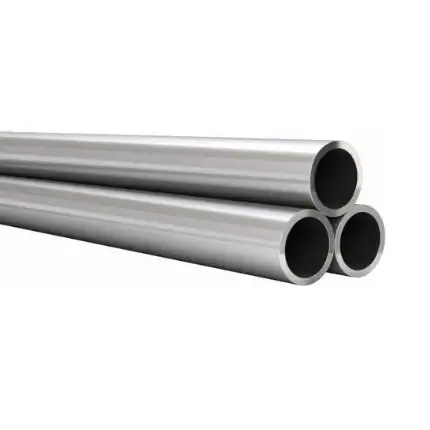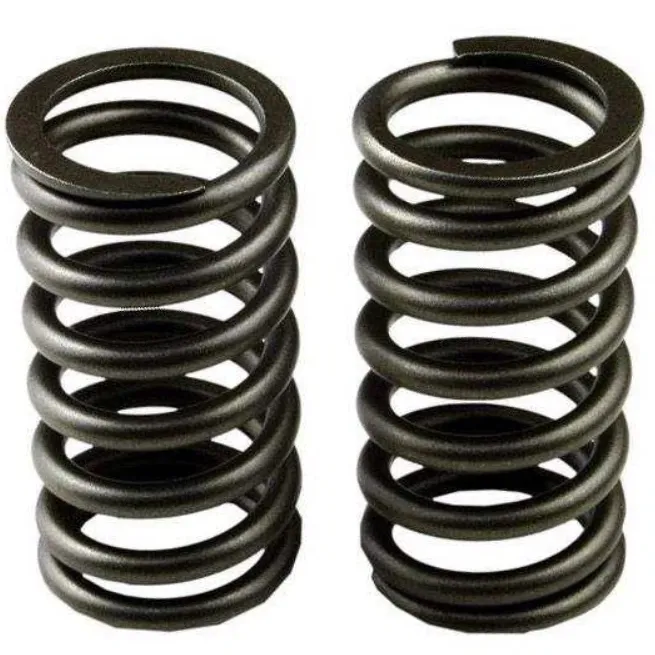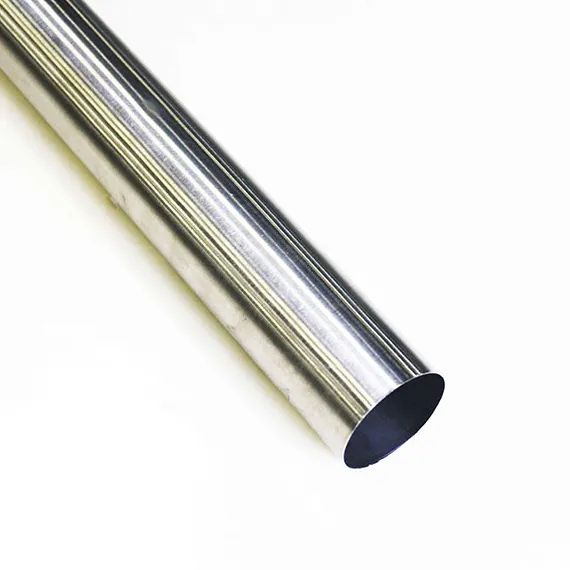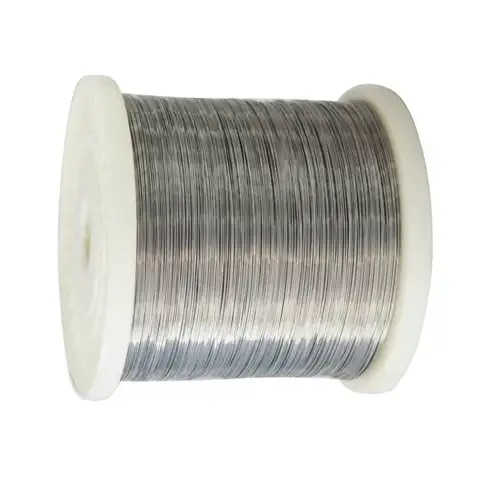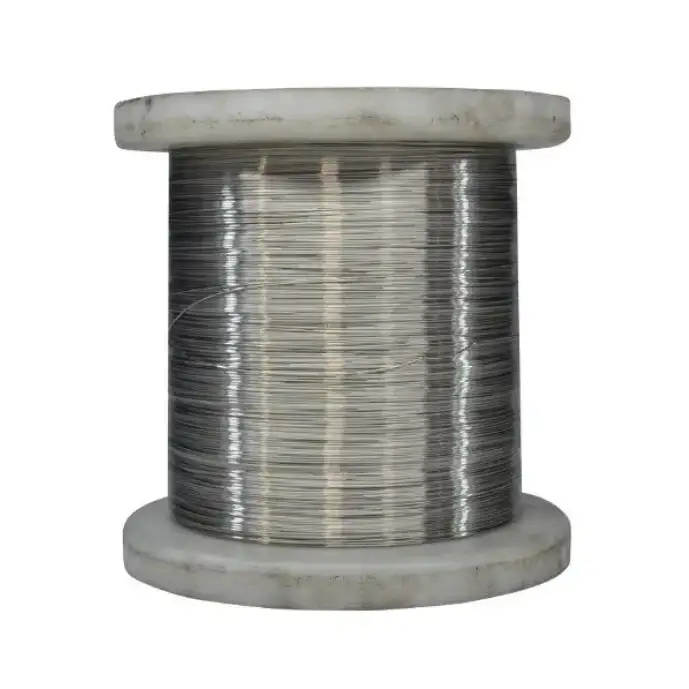Inconel 625 tubing (UNS N06625) is the top choice when resistance to corrosion (including chloride pitting and crevice corrosion), excellent creep resistance at elevated temperatures, and reliable performance in sour-service oil & gas or marine environments are required. For engineers and buyers who need a tubing material that combines long-term strength with outstanding weldability and fabrication flexibility, Alloy 625 tubing delivers a balanced performance that justifies its premium cost.
What is Inconel 625 tubing
Alloy 625 is a nickel-chromium-molybdenum-niobium solid-solution superalloy produced to provide high strength without precipitation hardening and outstanding resistance to a broad spectrum of corrosive media. In tubing form it is used for heat exchangers, chemical process lines, subsea tubing, downhole components, exhaust ducts, and wherever a durable, weldable corrosion-resistant tube is needed. The tubing is commonly supplied seamless or welded to recognized international standards.
Typical chemical composition and why each element matters
A canonical composition for Inconel 625 (UNS N06625 / Werkstoff 2.4856) is approximately:
-
Nickel (Ni): ≥ 58% — base matrix providing corrosion resistance and toughness.
-
Chromium (Cr): 20–23% — enables passivation and oxidation resistance.
-
Molybdenum (Mo): 8–10% — reinforces resistance to pitting and crevice corrosion.
-
Niobium (Nb) + Tantalum (Ta): 3.15–4.15% (reported together) — stabilizes the alloy and gives strength without requiring precipitation hardening.
-
Iron (Fe): ≤ ~5% (balance variable) — minor effect on corrosion for this alloy.
-
Other trace elements: Co ≤1%, Si ≤0.5%, Mn ≤0.5%, C ≤0.1%, P/S very low.
Why it matters: the Nb + Mo combination provides solid-solution and localized strengthening that keeps the alloy strong at elevated temperatures, while the high Ni and Cr give broad corrosion resistance in acids, seawater and chloride environments. These compositional ranges are the baseline for most manufacturers and are embedded in relevant specifications.
Mechanical and thermal properties
Key, service-relevant properties engineers ask for:
-
Density: ~8.44 g/cm³ (≈ 8440 kg/m³).
-
Typical tensile strength (annealed): depends on product form; wrought rod/plate values commonly fall in the 700–900 MPa ballpark depending on condition and temper.
-
Yield strength: varies by temper and thickness but is substantially higher than common austenitic stainless steels at elevated temperatures.
-
Service temperature range: cryogenic up to ~980°C (1800°F) for many non-loadbearing applications, with long-term use limited by creep considerations at high temperature.
Engineering note: tubing for pressure systems must always be sized according to the applicable code (ASME, API etc.), and design stress values must reflect the specific product form (seamless vs welded) and the heat treatment condition.
Applicable standards and specifications for tubing
Common standards and test documents that regulate Inconel 625 tubing:
-
ASTM/ASME: many suppliers reference ASTM B444 / ASME SB444 for seamless pipe/tube of nickel-chromium-molybdenum-columbium alloys including Alloy 625. Other relevant ASTM/ASME numbers appear in product literature for tube and pipe forms.
-
AMS / SAE: aerospace and special orders sometimes use AMS designations (e.g., AMS 5666 for bars/forgings).
-
ISO / EN / Werkstoff: EN / ISO equivalents and German Werkstoff number 2.4856 are commonly used for cross-referencing.
-
NACE MR0175 / ISO 15156: guidance for use in H₂S (sour service) environments; Alloy 625 is frequently referenced in MR0175/ISO15156 tables where it is permitted under prescribed metallurgical conditions (typically annealed condition and with supplier certification).
Practical tip: always specify the exact standard, product form, heat treatment and required NDT when ordering (for example: “ASTM B444 Grade 1, seamless, annealed, 100% PMI, UT and hydrostatic test, NACE MR0175 certified”).
Corrosion behaviour and common service environments
Alloy 625 is prized for resistance to:
-
Pitting and crevice corrosion in chloride-bearing media.
-
Stress-corrosion cracking resistance — much better than many austenitic stainless steels in chloride and H₂S environments.
-
General corrosion in many organic acids and seawater.
-
High temperature oxidation and scaling resistance up to several hundred degrees Celsius.
Because of that combination, Inconel 625 tubing finds use in chemical process piping, subsea lines, downhole equipment, flue gas desulfurization, marine hardware, and exhaust ducts. For sour service (H₂S), Alloy 625 typically must meet MR0175/ISO 15156 requirements and be supplied with the correct metallurgical documentation and heat treatment.
Manufacturing forms, available sizes and a practical sizes & weight table
Common product forms: seamless tubing, welded tubing, precision instrument tubing, coiled tubing, and large-diameter straight pipe. Stock ranges depend on mill: many stocking houses list OD from 1/2" up to 4" for small bore tubing; larger diameters are produced to order.
Density used for weight calculations: 8.44 g/cm³ (8440 kg/m³).
Below is a practical reference table (typical wall thicknesses and unit weights). Values are mass per metre (kg/m) and equivalent lb/ft. Use these only for quick estimating — for procurement and transport use the exact mill certificate dimensions.
| OD (mm / in) | Wall (mm) | Mass (kg/m) | Mass (lb/ft) |
|---|---|---|---|
| 6.0 mm (≈1/4") | 0.8 mm | 0.1103 kg/m | 0.0741 lb/ft |
| 6.0 mm | 1.5 mm | 0.1790 kg/m | 0.1203 lb/ft |
| 8.0 mm (≈5/16") | 0.8 mm | 0.1527 kg/m | 0.1026 lb/ft |
| 8.0 mm | 1.5 mm | 0.2585 kg/m | 0.1737 lb/ft |
| 12.0 mm (≈1/2") | 1.5 mm | 0.4176 kg/m | 0.2806 lb/ft |
| 19.05 mm (3/4") | 1.5 mm | 0.5425 kg/m | 0.3644 lb/ft |
| 25.4 mm (1") | 2.0 mm | 0.9630 kg/m | 0.6469 lb/ft |
| 38.1 mm (1.5") | 3.0 mm | 2.1870 kg/m | 1.4702 lb/ft |
| 50.8 mm (2") | 3.0 mm | 2.9870 kg/m | 2.0079 lb/ft |
| 76.2 mm (3") | 4.0 mm | 6.2350 kg/m | 4.1927 lb/ft |
| 101.6 mm (4") | 5.0 mm | 10.1700 kg/m | 6.8410 lb/ft |
(Calculated from hollow-tube volume using density 8.44 g/cm³ — use certified mill data for final quantity takeoffs.)
2025 global price comparison
Important: Inconel 625 is a premium nickel alloy; prices vary with global nickel and molybdenum commodity cycles, mill form (tube vs plate), size, certification and order quantity. The figures below are market ranges observed in 2025 from multiple supplier lists and distributor price notes — intended for budgeting, not firm quotes.
Typical 2025 FOB price ranges (representative, per metric ton / per kg):
| Region / Channel | Typical range (USD / ton) | Typical range (USD / kg) | Notes |
|---|---|---|---|
| China (factory, small bore tubing market pages) | ~USD 15,000 – 30,000 / ton | ~15 – 30 / kg | Many China mills list competitive unit prices on trading platforms; final price depends on certification (NACE/ASTM) and volume. |
| India / local mills & stockists | ~USD 20,000 – 40,000 / ton | ~20 – 40 / kg | Indian mills quote higher for small batches with export documentation. |
| US / Europe (distributors, specialty suppliers) | ~USD 35,000 – 60,000 / ton | ~35 – 60 / kg | Distributor prices reflect higher local production costs and inventory carry; sometimes listed per kg on catalogs. |
| Large project / OEM long-term contracts | Negotiated | Negotiated | Long contracts and consignment stock can lower unit price but require volume commitments. |
Major price drivers
-
Nickel and molybdenum raw material costs, and exchange rates.
-
Product form (precision seamless tubing carries a premium).
-
Testing and documentation requirements (NACE/ISO/traceable MQC adds cost).
-
Logistics and short lead-times (air freight or urgent deliveries add a markup).
Buying tip: Request mill certificates, chemical analysis/PMI, and NDT results; ask suppliers to break down the unit price by raw material, processing, testing and packaging so you can compare apples to apples.
Fabrication, joining and testing
Welding & joining: Alloy 625 is relatively weldable for a high-performance alloy — gas tungsten arc welding (GTAW/TIG) and gas metal arc welding (GMAW/MIG) are common. Filler alloys (matching grade or designated welding wire) are used for optimal joint properties. Pre- and post-weld heat treatments are rarely required for Alloy 625 because it gains strength from solid solution elements rather than precipitation hardening, but local practices depend on service and code requirements.
Forming & bending: Cold forming and bending are feasible for thin-walled tubing, but use appropriate springback allowances and trained tooling due to work hardening behaviour.
Inspection & testing: Common acceptance tests include:
-
PMI / spectrochemical verification of chemistry
-
Mechanical testing (tensile, elongation) per spec
-
Hydrostatic pressure testing and/or pneumatic tests (for pressure tubing)
-
Ultrasonic testing (UT) and visual inspection (VT) for seam/weld integrity
-
NACE MR0175/ISO 15156 conformance documentation for sour service
Quality documents: Mill test report (MTR / EN 10204), certificate of compliance to specified ASTM/ASME standard, and any third-party inspection certificates.
Selection checklist
Before placing an order, confirm:
-
Exact UNS/Alloy: UNS N06625 (Inconel 625) or a trade name equivalent.
-
Product form & dimension: OD, wall, length, coil or straight; seamless vs welded.
-
Standard and grade required (e.g., ASTM B444 Grade 1, annealed).
-
Heat treatment condition: annealed vs other.
-
Certifications: MTR EN 10204 3.1 / 3.2, PMI, NACE MR0175/ISO 15156 if sour service.
-
NDT & testing: UT, hydrotest, hardness, PMI, mechanicals.
-
Pack & delivery: anti-contamination packing for subsea/chemical use.
-
Warranty & traceability: full traceability back to heat and melt number.
-
Lead time & logistics: stock vs made-to-order; request FOB or CIF quotes.
-
Total cost: material + testing + documentation + freight + duties.
Supply chain note — MWalloys and China suppliers
MWalloys is a specialized metal materials supplier with experience serving industrial and OEM customers. For Alloy 625 tubing we offer:
-
Factory direct pricing from Chinese mills (100% factory price).
-
Fast stock delivery for common sizes because of our stock program and direct mill relationships.
-
Full documentation: mill certificates (3.1 / 3.2), PMI reports, NDT reports and NACE/ISO compliance where required.
-
Customization: cut lengths, end-finishing (beveling/polishing), domestic testing and third-party inspection upon request.
If you prefer a domestic distributor for very short lead times and local inventory, we can coordinate with authorized stocking partners in your region. For project quantities our China factory channels typically give the best unit cost while preserving certification and traceability.
FAQs
Is Inconel 625 magnetic?
Inconel 625 is essentially non-magnetic in the annealed condition. Cold working can introduce some slight magnetic response, but it is generally treated as non-magnetic for engineering purposes.
Can Inconel 625 tubing be used in sour (H₂S) service?
Yes, Alloy 625 is commonly used in sour environments, but the product must meet NACE MR0175 / ISO 15156 conditions (usually annealed condition). Always request supplier certification.
Do I need special welding filler metal for 625 tubing?
For optimal performance use matching filler alloys specified by the welding procedure (e.g., Alloy 625 filler wire) and qualified welding procedures per the governing code.
How does Alloy 625 compare with 316L or duplex stainless steels?
625 offers superior pitting and crevice corrosion resistance, higher strength at temperature, and better resistance to stress-corrosion cracking, but it costs substantially more. Selection depends on environment and lifecycle cost analysis.
Is Inconel 625 available as seamless and welded tubing?
Yes. Seamless tubing often carries a premium and is preferred for high pressure and critical applications. ASTM B444 covers many seamless forms.
How to estimate weight and shipping for tubing?
Use the hollow-tube geometry and density (8.44 g/cm³) to compute kg/m; always round up for packaging and include certificates and packing weight in logistics planning.
Typical lead time?
Stock sizes from mill inventories can ship in days to weeks; made-to-order special sizes and certified lots may take several weeks. MWalloys maintains stock for fast delivery on common tubular sizes.
Is Inconel 625 machinable?
It is more difficult to machine than stainless steel because of work hardening and toughness. Use hardened tooling, controlled cutting rates, and coolant strategies.
Environmental restrictions / heat exposure limits?
It performs well up to several hundred °C; consult creep data and design codes for continuous high temperature loadings.
How to verify supplier claims?
Request full MTR (3.1/3.2), third-party inspection if required, and independent PMI or spectral analysis at receiving inspection.
Closing recommendations
-
For critical applications (pressure, sour service or subsea), specify ASTM/ASME standard, NACE MR0175 conformance where required, and full mill traceability.
-
If cost is an overriding constraint, evaluate lifecycle cost: longer service life and lower replacement frequency often justify the alloy premium.
-
For fast procurement, request sample certificates and ask MWalloys (or your preferred mill partner) for competitive factory direct quotes with lead times and inspection windows.

